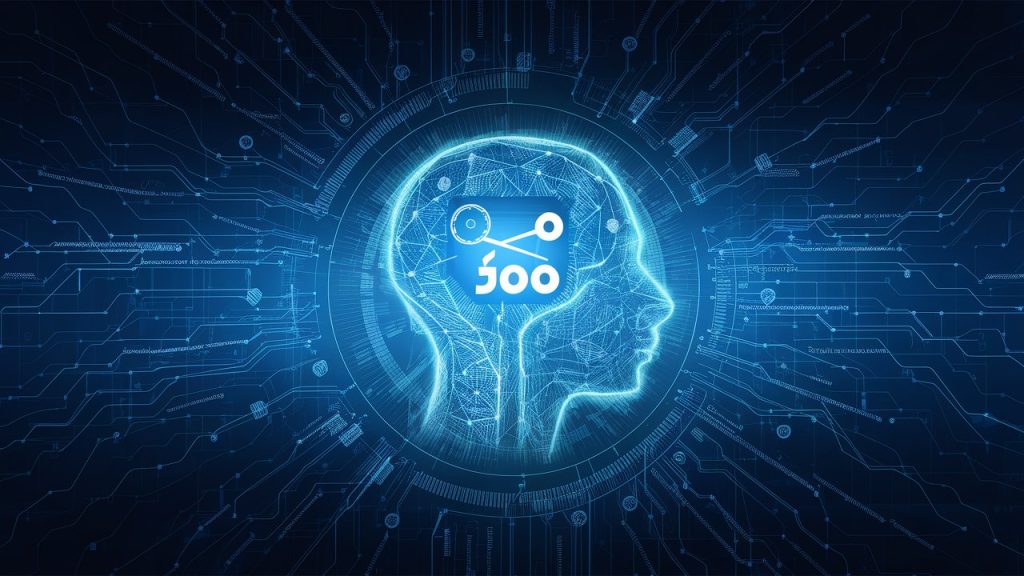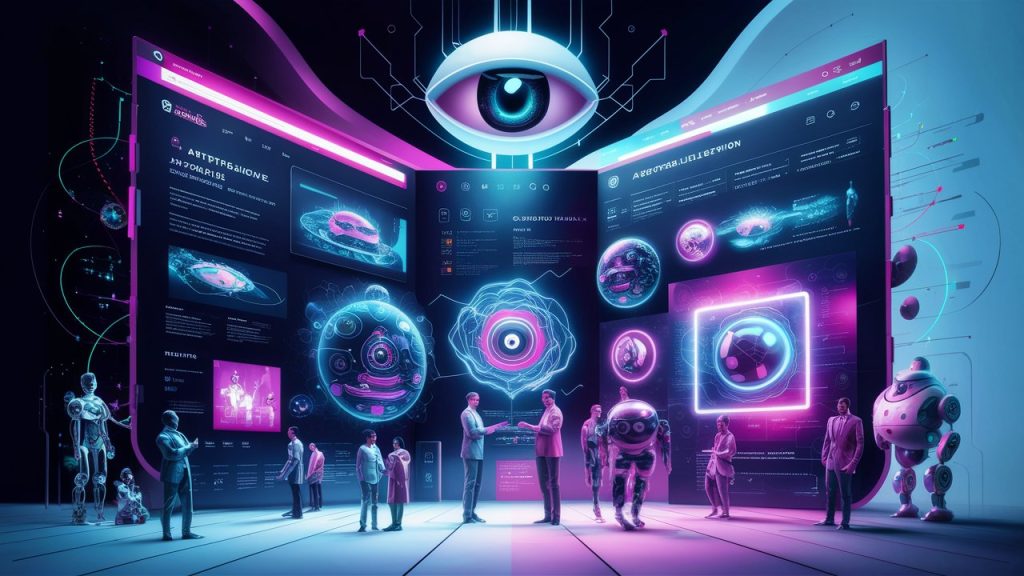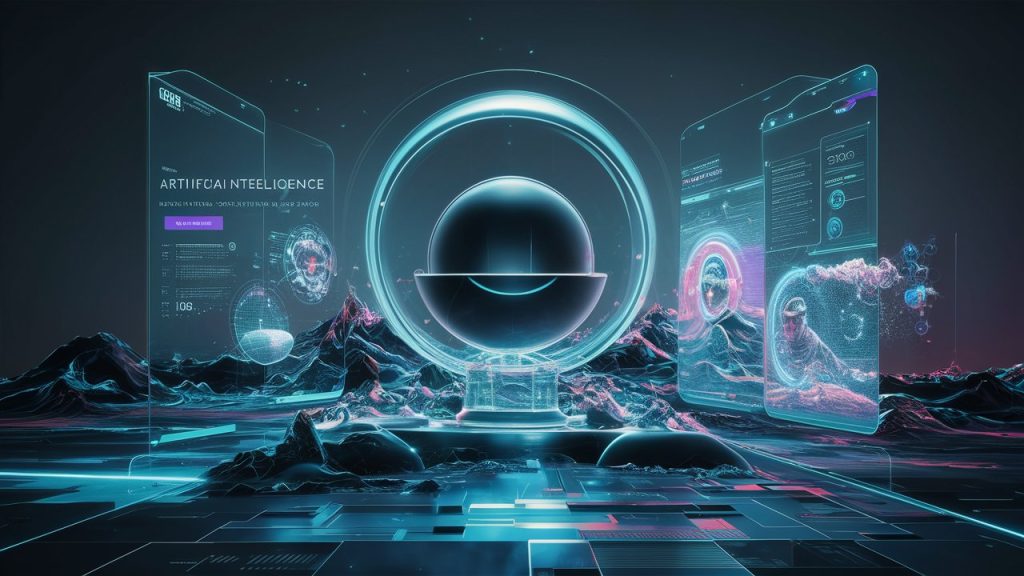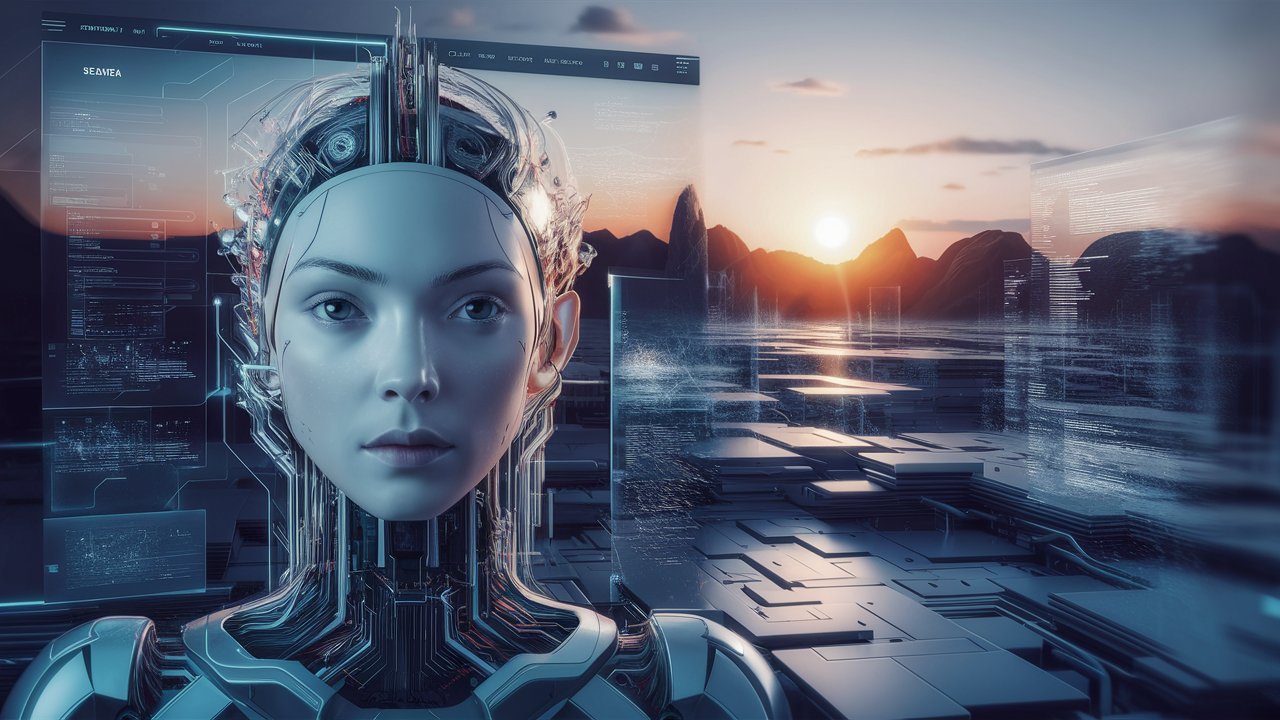Table of Contents
Introduction
Artificial Intelligence Website is no longer just a buzzword; it’s a transformative force changing how we live, work, and interact with technology. From virtual assistants like Siri and Alexa to recommendation systems on Netflix and Amazon, AI is making its mark in various industries. In the digital world, AI is revolutionizing website development and user experiences. But what exactly is an artificial intelligence website, and how is it reshaping the digital landscape? Let’s dive in.
What is an Artificial Intelligence Website?
An artificial intelligence website leverages AI technologies to enhance functionality, user experience, and operational efficiency. These Artificial Intelligence Website use machine learning algorithms, natural language processing (NLP), and other AI tools to create dynamic, interactive, and personalized experiences for users. Think of websites that remember your preferences, chatbots that offer instant support, and systems that recommend content or products tailored just for you. Examples include e-commerce giants like Amazon, streaming services like Netflix, and even personal finance platforms like Mint.
The Evolution of AI in Web Development
AI in web development has come a long way. Initially, websites were static pages with minimal interactivity. The introduction of AI brought significant milestones such as:
- Early Stages: Basic chatbots and recommendation systems.
- Advanced AI Integration: Machine learning algorithms for predictive analytics and NLP for more sophisticated user interactions.
- Current State: Highly personalized, intuitive, and adaptive websites that can predict user needs and provide relevant content or services in real time.
Key Components of an AI Website
Building an AI-driven website involves several critical components:
Machine Learning Algorithms
These algorithms learn from data patterns and user behavior, enabling Artificial Intelligence Website to offer personalized experiences and make accurate predictions.
Natural Language Processing (NLP)
NLP allows Artificial Intelligence Website to understand and respond to human language, making interactions with chatbots and virtual assistants more natural and effective.
Chatbots and Virtual Assistants
These tools provide instant support, answer queries, and guide users through the Artificial Intelligence Website, enhancing customer service and engagement.
Personalized User Experiences
AI analyzes user data to deliver content, recommendations, and services tailored to individual preferences and behavior.
Benefits of AI Websites
Enhanced User Engagement
AI-driven websites offer personalized experiences, keeping users engaged and coming back for more.
Improved Customer Service
Chatbots and virtual assistants provide instant, 24/7 support, resolving issues quickly and efficiently.
Efficient Data Handling and Analysis
AI automates data collection and analysis, providing insights that drive better decision-making and strategies.
Cost Reduction and Increased Productivity
AI automates repetitive tasks, reducing operational costs and freeing up human resources for more complex tasks.
Challenges in Developing AI Websites
While the benefits are significant, developing AI websites comes with challenges:
Technical Complexities
Implementing AI requires expertise in machine learning, data science, and software development.
Data Privacy and Security Concerns

Handling vast amounts of user data raises concerns about privacy and security, necessitating robust measures to protect user information.
Ethical Considerations
AI decisions can be biased, leading to ethical dilemmas in how data is used and interpreted.
Popular AI Tools and Technologies for Websites
Several tools and technologies can help integrate AI into Artificial Intelligence Website:
- AI Frameworks and Libraries: TensorFlow, PyTorch, and Scikit-Learn for developing machine learning models.
- AI-Powered CMS: Platforms like WordPress with AI plugins for content optimization.
- AI-Driven Analytics Tools: Google Analytics with AI features for advanced data insights.
How AI Transforms User Experience
AI significantly enhances user experience through:
Personalized Content Recommendations
AI algorithms suggest relevant content based on user behavior and preferences, keeping users engaged.
Adaptive User Interfaces
AI can modify the website layout and features based on user interactions, creating a more intuitive experience.
Predictive Analytics for User Behavior
By analyzing past behavior, AI predicts future actions, allowing websites to anticipate and meet user needs proactively.
AI in E-commerce Websites
E-commerce platforms benefit immensely from AI:
Intelligent Product Recommendations
AI analyzes user data to suggest products that match individual preferences, boosting sales.
AI-Driven Customer Service
Chatbots handle customer queries efficiently, providing quick and accurate responses.
Dynamic Pricing Strategies
AI adjusts prices in real-time based on demand, competition, and user behavior, maximizing revenue.
AI in Healthcare Websites

Healthcare websites use AI to enhance patient care:
Virtual Health Assistants
AI-powered chatbots provide medical information and support, helping patients manage their health.
Predictive Diagnostics
AI analyzes medical data to predict health issues, enabling early intervention and treatment.
Personalized Treatment Plans
AI tailors treatment plans based on patient data, improving outcomes and patient satisfaction.
AI in Educational Websites
Educational platforms leverage AI for personalized learning:
Personalized Learning Experiences
AI adapts content and pace to suit individual learning styles and needs.
AI Tutors and Learning Companions
Virtual tutors provide guidance and support, enhancing the learning experience.
Enhanced Assessment Tools
AI offers more accurate and comprehensive assessments, helping educators track progress and identify areas for improvement.
Future Trends in AI Websites
The future of AI in web development looks promising:
Growing Role of AI in Web Security
AI will play a crucial role in detecting and preventing cyber threats, ensuring safer online experiences.
AI-Driven Web Design
AI tools will automate web design, creating aesthetically pleasing and functional websites with minimal human intervention.
Advanced AI Chatbots
Future chatbots will be even more sophisticated, capable of handling complex queries and providing deeper insights.
Steps to Integrate AI into Your Website
Assessing Your Website’s Needs
Identify areas where AI can add value, such as customer service, personalization, or data analysis.
Choosing the Right AI Tools
Select tools and technologies that align with your website’s goals and requirements.
Implementing AI Features
Integrate AI components gradually, starting with the most impactful features.
Continuous Monitoring and Optimization

Regularly evaluate AI performance and make necessary adjustments to enhance effectiveness.
Case Studies of Successful AI Websites
Example 1: Amazon
Amazon’s AI algorithms drive personalized recommendations, dynamic pricing, and efficient logistics, making it a leader in e-commerce.
Example 2: Netflix
Netflix uses AI to recommend shows and movies, optimizing viewer engagement and retention.
Example 3: Mint
Mint’s AI-powered financial tools provide personalized advice and insights, helping users manage their finances effectively.
Conclusion
AI is revolutionizing the digital landscape, making websites more interactive, personalized, and efficient. From enhancing user experience to optimizing operations, AI-driven websites are the future of web development. As technology continues to evolve, the potential for AI in web development is limitless, promising even more innovative and transformative solutions. Artificial Intelligence Website
FAQs
What is an AI website?
An AI website uses Artificial Intelligence Website technologies to enhance functionality, user experience, and operational efficiency through machine learning, NLP, and other AI tools.
How does AI improve user experience on websites?
AI personalizes content, provides instant support via chatbots, adapts user interfaces, and predicts user behavior, creating a more engaging and intuitive experience.
What are some challenges in developing AI websites?
Challenges include technical complexities, data privacy and security concerns, and ethical considerations related to AI decision-making.
Which industries benefit the most from AI websites?
E-commerce, healthcare, and education are among the industries that benefit significantly from AI-driven websites, enhancing customer service, patient care, and personalized learning. Artificial Intelligence Website
How can I start integrating AI into my website?
Start by assessing your website’s needs, choosing the right AI tools, implementing AI features gradually, and continuously monitoring and optimizing AI performance.

